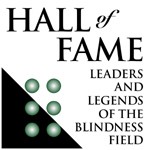Dean Tuttle Interview
Interviewed by Michael Bina
July 2013
-
When you were growing up what career did you think you would pursue?
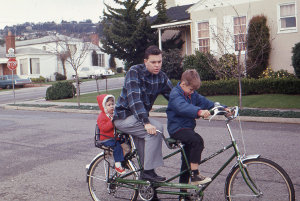
When I was growing up, my life revolved around hospital life on the mission field in Congo, where my father was a doctor and my mother a nurse. They were responsible for a clinic, a pharmacy, surgical unit, several wards with 100 beds, a nursing school, and a village for people with leprosy. Initially, when I would contemplate a career for myself, my thoughts would turn to the medical profession. Secondarily, I dreamed that I might someday be a missionary serving overseas.
-
Did you ever imagine that you would be working in the field of blindness? Did you find the field or did it find you?
Early on, I never knew there was a potential career in "the field of blindness." I attended a boarding school for missionaries’ children in central Congo for my elementary and secondary education. During all that time, I had met only two blind persons and they were patients at my father’s hospital. I had been diagnosed with retinitis pigmentosa as a ten-year-old so I had concluded that medicine was not for me and began thinking about the field of education. At Wheaton College, Illinois, I majored in mathematics and minored in physics with plans to be a high school teacher. I graduated in 1958 still reading print but with significant loss of peripheral vision and, as yet, had not connected with or been referred to any agency serving the visually impaired. I didn’t know such services existed.
-
Who or what influenced you to work in this field?
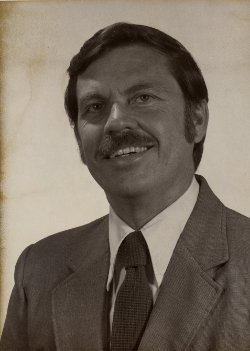
In my 9th grade math class at Hillside Jr. High School, Montclair, NJ, there was a totally blind student, Debbie Stevens, who was receiving support services from a "Resource Room for the Blind." She was using a Taylor Slate for her computations and doing it quite proficiently. However, it was cumbersome and slow compared to the paper and pencil used by her sighted classmates. With my math background, I was motivated to explore other computational options for blind and visually impaired students. The Resource Room teacher referred me to the NJ Commission for the Blind where I met Josephine Taylor who was director of educational services for the visually handicapped for the state of New Jersey. After explaining my interest in special education, she all but insisted that I pursue an M.A. degree in education of the blind with her friend Georgie Lee Abel at San Francisco State College.
-
Who were your mentors?
I had so many mentors it would be difficult to list them all but I will confine myself to five:
Henry Phoenix was the first blind person I had the privilege of knowing up close. He was the principal of the school where I had landed my first job, teaching math and science to sighted high school students. He was confident, poised, knowledgeable, and very talented. Little did he know that he was serving as a role model for one of his teachers who was losing his vision.
Jo Taylor, who introduced me to the field, subsequently moved to Washington, D.C. to serve as a strong advocate for blind and visually impaired within the Department of Health, Education and Welfare, Division of Personnel Preparation. I admired her strength of convictions and her power of persuasion.
Georgie Lee Abel was my major professor at San Francisco State College and found her to be one of our nation’s leading proponent of blind and visually impaired students integrated into public school education. She seemed to know everyone who was anybody in the field of blindness. Her engaging warm southern-style hospitality stole my heart.
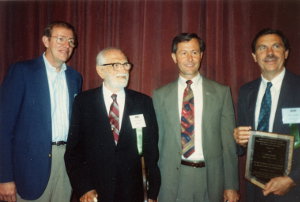
As I was breaking into the special education arena, Phil Hatlen was already a legend in the education of blind children in California. I admired his leadership qualities, his uncanny ability to say the right thing at the right time. Always a favorite conference speaker, his presentations have invariably been thoughtful and provocative. I have always admired Phil’s remarkable way with words and his effective style of communication.
Berthold Lowenfeld, in my opinion, was one of our strongest statesmen and ambassadors for our profession through his conduct, presentations and publications. If truth were known, I was in awe of him and his accomplishments. Then when he agreed to serve on my doctoral committee, I was simultaneously overjoyed and fearful … overjoyed because he brought dignity, stature and credibility to the committee but fearful because I felt so insignificant in the presence of one of our foremost leaders recognized nationally and internationally.
-
In your career you have been a mentor to others. Give an example where you had a positive influence on a colleague or young protégé.
As is probably true of most graduate programs, I found it gratifying to cultivate a relationship which started out as a professor-student interaction but often grew into a friend and colleague dynamic. Although this relationship would begin on campus with give and take dialogues with both of us growing, many conversations would continue when the graduate would call about a particular problem or just to talk. I must admit to experiencing a sense of pride when our graduates took leadership roles within our profession.
-
Do you still recall the names of some of your blind or low vision students and clients? Which three come to mind and why?
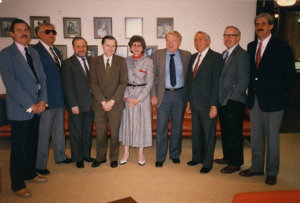
Larry Truong, blind from retinoblastoma, was one of my high school students who had recently immigrated from Viet Nam. He had learned his English by reading the Reader’s Digest. He was so very bright and would sponge up everything I would pass on to him. He later earned his Ph.D. from UC Berkeley in mathematics.
The Dole twins at the California School for the Blind taught me the value and dignity of every individual regardless of the multiplicity of handicaps. People with CP who are slow learners, have difficulty communicating and are tactilely defensive are indeed worthy of the very best that we can offer.
Gaylen Kapperman, now at Northern Illinois University, received his doctorate in Special Education at the University of Northern Colorado. He was a bundle of energy ready to explode onto the national professional stage. He had learned to pace himself and judicially direct his energies to productive endeavors. He is one of those who, in many ways, has out-stripped his mentor.
-
What would you list as your two or three proudest moments in your career?
I’m not sure I like the word "proud." I can tell you times when I have been pleasantly surprised.
I was pleasantly surprised when I was awarded a Ph.D. for several reasons. Initially, I just wanted to take some graduate courses in education. I never thought of myself as a candidate for a doctoral degree. Then, surprisingly, I was accepted into the joint special education doctoral program between San Francisco State University and the University of California at Berkeley. Course piled upon course until I had enough to graduate.
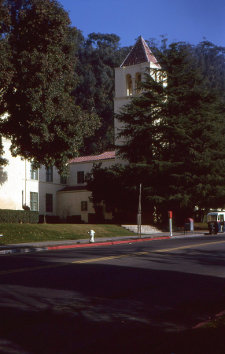
I was pleasantly surprised when Charles C. Thomas agreed to publish the book "Self-esteem and Adjusting with Blindness." When I first started writing, I wanted to put the material I was organizing into an article. As the volume of the material kept growing, I began conceptualizing a pamphlet … certainly not a book. When we finally sent our manuscript to the publisher, they requested that I cut twenty percent, a very difficult task for a fledgling author who had labored hard and long over each page.
Of course, I was more than pleasantly surprised to be recognized by my peers for a variety of tributes and awards from organizations like AFB, AERBVI, CEC/DVH, especially amazing to me because I’ve never thought of myself as anyone special. Each award was unique with special significance to me but the one that was especially gratifying was when my wife, Naomi, was recognized for her own accomplishments with the APH "Wings of Freedom" at the same time I received mine.
-
Did you ever imagine that you would be recognized and inducted in the field’s hall of fame? When you were informed that you were an inductee, what were your thoughts?
In my mind, our field’s Hall of Fame was reserved for really prominent and giant heroes, those who had made significant contributions with a lasting influence here at home and around the world. This notion was deeply ingrained in me as we prepared for AER’s "Heroes and Pioneers" Presentation for the 2000 Denver conference. As Naomi and I wrote the bios for the original 32 heroes and pioneers, I realized how truly great these individuals were and the extent of the rich heritage they left us.
When I was notified that I would be inducted into our Hall of Fame, I was flabbergasted. I thought there must be some mistake because I knew I was just an ordinary guy with ordinary abilities whose desire was to do his best at his various jobs. I knew I didn’t match up to the heroes and pioneers Naomi and I had written about in 2000.
-
During your career you undoubtedly saw the field change in many different ways. How did it change? In which ways do you wish it would have changed more?
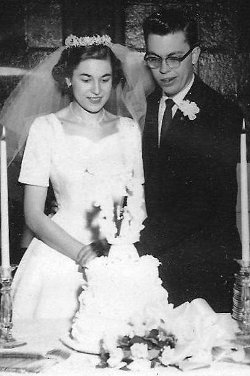
The push for "full inclusion" brought with it an influx of "generic" service providers who lack training in specific blindness-related specialized skills and adaptive behaviors. We over-stated the premise that blind children are just like other kids in our efforts to integrate blind and VI students into the public schools.
I welcomed the strong efforts to recognize and detail the specialized needs of and intervention strategies for blind and VI students in what became known as the "Expanded Core Curriculum."
I have been gratified to observe the expansion of our professional literature and the increasing quantity of quality research being conducted which helps to define and provide direction for our field.
I can’t tell you how much technology has revolutionized my life and the life of blind people. It is my window to the world through the Internet for news, shopping, and communicating with others. I am able to scan, read, and braille personal copies of print materials. With my GPS adapted for the blind I can know my position, find points of interest, and create routes. These are only three examples of many more I could cite.
I have noticed an increased acceptance and understanding of people with disabilities in our communities. It’s far too easy to take this fact for granted, forgetting the many struggles of those that went before us. On the other hand, we still have a ways to go because I still run into unnecessary barriers and obstacles.
-
What are three to five pieces of advice would you give to people entering the field just beginning their first experience working with clients or students?
Enjoy blind people. Learn to appreciate each individual’s unique strengths, abilities, and how each functions.
Enjoy your chosen profession. You have the opportunity to make a huge impact on many individuals.
Cultivate observational and problem-solving skills as you strategize to meet each individual’s unique needs. One size does not fit all.
Remember that the focus is on your students/clients. It’s all about them and not about you, your conveniences, your comforts.
Learn to laugh with your students/clients not at them.
-
What are three to five pieces of advice would you give to those in the field who are experienced "having been around a few years?"
You make a difference. Many of us are not aware of the full impact we have on students/clients and their family members. It’s easy to get caught up in the day to day grind without seeing the big picture.
With the frustrations of administration demands, paper work, poor pay, and isolated work environment, resist the temptation to throw in the towel. Your students/clients need you more than you may acknowledge or realize.
Make the effort to keep current with our profession’s best practices, adaptive aids and devices. With changes and improvements coming at an increasingly fast pace, I realize it requires a strong personal commitment to stay on top of what’s happening. Your students/clients deserve the very best.
We have a great profession. Support one another at the local, state and national levels through our various organizations. Get involved in molding and shaping our careers.
-
When you look back on your career, what was a humorous experience that really made you laugh?
I can tell you an embarrassing moment in my professional career. I had a German shepherd dog guide named Warren who loved to work, was all business when guiding and rather socially aloof. He and I had travelled to many conferences, workshops and seminars where I was usually the speaker. At one AER conference, there was a topic that interested me so I wanted to sit in as a participant. Warren guided me to the correct conference room and dutifully took me to the front of the room and the speaker’s podium. The presenter was gracious about asking me if I wanted to take over, at which time, being uncomfortably chagrinned, I tried to inconspicuously find a place in the audience.
Photos: Dean, Ray, and Wes Tuttle on tandem bike, 1970; Dean Tuttle about 1988; AER Bledsoe Award, Rick Welsh, Dr. Lowenfeld, Dean Tuttle, Mike Bina, Summer 1992; Hadley Education Advisory Council, 1987; Front of California School for the Blind, 1967; Wedding of Dean and Naomi Tuttle, 1958.
Go to Dean Tuttle’s Hall of Fame Biography
Go to the Hall of Fame
